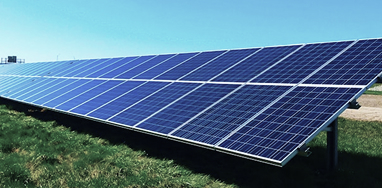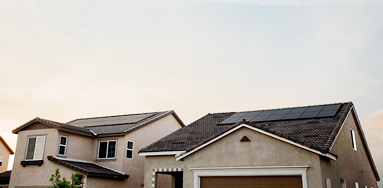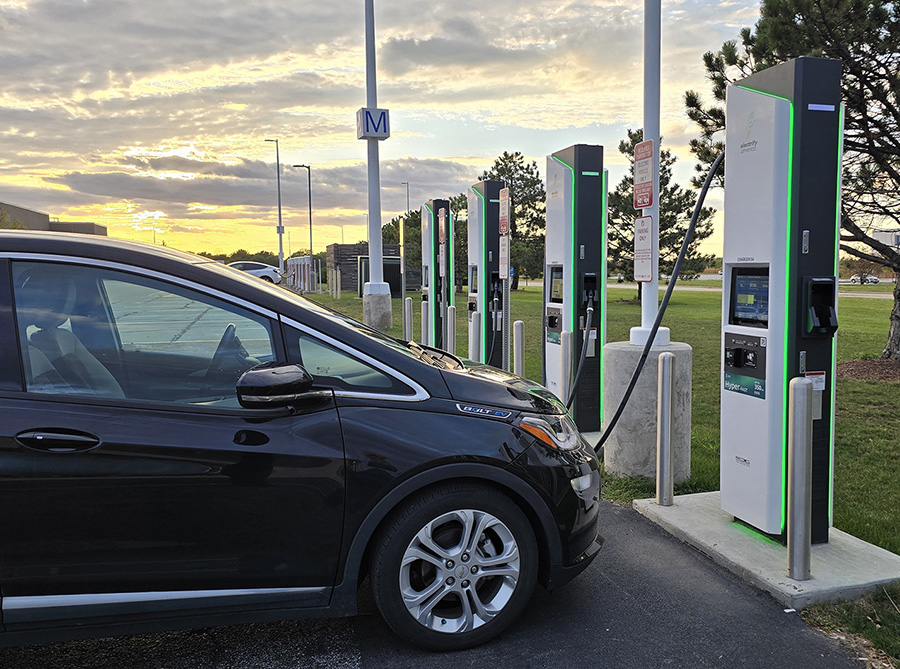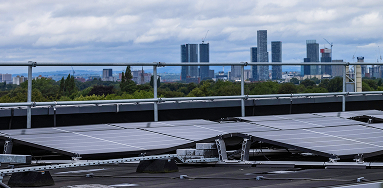Created in 2004 and named the Climate Bank in 2021, the Illinois Finance Authority (IFA) uses finance to attract private capital to drive economic growth and job creation/retention, reduce debt costs, and catalyze climate investments. Working to benefit the geographic, racial, ethnic, gender, and income-level diversity of Illinois, IFA supports its operations without direct state taxpayer appropriations.
About Us
Purpose and Formation of the Illinois Climate Bank
In 2021, Illinois Finance Authority was designated as the State Climate Bank for the State of Illinois as part of the Climate and Equitable Jobs Act.
The Illinois Climate Bank provides financing and programs to help residents, businesses, and communities implement equitable clean energy solutions.
Through its work, the Climate Bank aims to mitigate the negative impacts of climate change while creating a more sustainable and equitable future for all residents of Illinois.
Funding and Financing Opportunities
By leveraging state and federal incentives alongside private financing, the Climate Bank works to make clean energy more affordable and accessible, supporting equitable deployment of clean energy projects across the state. In close partnership with local government leaders, private property owners, and private lenders, the Illinois Climate Bank has mobilized and deployed just over a quarter billion dollars to advance the clean energy economy since its founding.
The Climate Bank’s offerings can be combined with various state and federal incentives to support clean energy projects. Please visit our Financing & Programs section for more information on specific funding and financing opportunities available today to help drive the state’s clean energy future.
About the Illinois Finance Authority
Public Finance
As the statewide public finance resource, IFA attracts private capital with generally favorable interest rates by issuing federally tax-exempt conduit bonds on behalf of borrowers to drive economic development, enhance infrastructure, and improve quality of life across Illinois.
Economic Development
As the finance partner of the Illinois Department of Commerce and Economic Opportunity (DCEO), IFA provides innovative finance solutions to advance our state’s economic development goal.
Climate Bank
As the Illinois Climate Bank, IFA partners with other state agencies to attract and deploy federal and private capital to advance the goals of the nation-leading Climate and Equitable Jobs Act (CEJA).
Achievements
Illinois Climate Bank secures more than $460 Million in Federal Funding to Drive the State’s Clean Energy Transition

$156 Million
Greenhouse Gas Reduction Fund Solar for All
$156 million under the U.S. Environmental Protection Agency’s Greenhouse Gas Reduction Fund Solar for All competition to expand which will enable households in low-income and disadvantaged communities to benefit from distributed solar energy.

$137 Million
Climate Pollution Reduction Grant
$137 million from the U.S. Environmental Protection Agency’s Climate Pollution Reduction Grant to support emissions reductions across key sectors including clean buildings, clean fleets and freight, and clean power.

$100+ Million
National Clean Investment Fund
$100+ million from the U.S. Environmental Protection Agency’s National Clean Investment Fund for new climate finance tools to support vehicle and building electrification, clean energy, and more.

$40 Million
Grid Resilience Grants
$40 million Grid Resilience Grants from the U.S. Department of Energy to support grid resilience initiatives in disadvantaged communities in Illinois.

$15 Million
Charging and Fueling Infrastructure Grant
$15 million Charging and Fueling Infrastructure Grant from the U.S. Department of Transportation to deploy EV charging infrastructure in 200 locations across the State.

$14 Million
Energy Efficiency Revolving Loan Fund
$14 million from the U.S. Department of Energy’s Energy Efficiency Revolving Loan Fund Capitalization Grant to support energy efficient buildings and on-site solar.
The Illinois Climate Bank, along with staff from the Governor’s office and other state agencies, is working tirelessly to ensure the money awarded to the bank to spur clean energy adoption across the state makes its way into the hands of residents, small business owners and local governments.